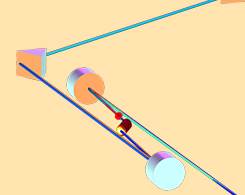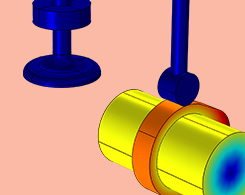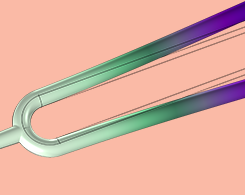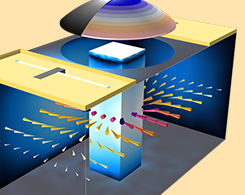Blog Posts Tagged Technical Content

Ray Optics Simulation of Sagnac Interferometers and Ring Laser Gyros
Have you ever been in a revolving restaurant that slowly spins as you dine? This same concept can be used to understand the operating principles of Sagnac interferometers and ring laser gyros.

How to Model a Cam-Follower Mechanism
Watch a series of animations that show the different types of cam-follower mechanisms before learning how to model them in COMSOL Multiphysics®.

Common Pitfalls in Electrothermal Analysis
In the real world, electromagnetic heating often involves a nonlinear temperature. Learn some common pitfalls that occur during this type of electrothermal analysis and how to overcome them.

Finding Answers to the Tuning Fork Mystery with Simulation
If you strike a tuning fork and hold it against a tabletop, the peak frequency of the emitted sound doubles. Is there a physical explanation for this “tuning fork mystery”?

Multiphysics Modeling of Stress Corrosion in Underground Pipelines
Stress corrosion is a phenomenon that causes degradation in underground pipelines. Learn how to use multiphysics modeling to understand and predict its occurrence.

How to Model Linear and Nonlinear Optics in the COMSOL® Software
See how to model the Kerr effect, and other linear and nonlinear optical phenomena, using the Wave Optics Module and COMSOL Multiphysics®.

High-Fidelity Modeling of a Tunable Filter via Multiphysics Simulation
Tunable cavity filters can enhance the development of high-speed, wireless communication networks. To optimize these devices for such a purpose, we can turn to high-fidelity modeling.

How to Perform Multimaterial Optimization in COMSOL Multiphysics®
Does a tuning fork sound better when made out of aluminum instead of copper or steel? In COMSOL Multiphysics®, you can perform an optimization study for multiple materials to find out.
